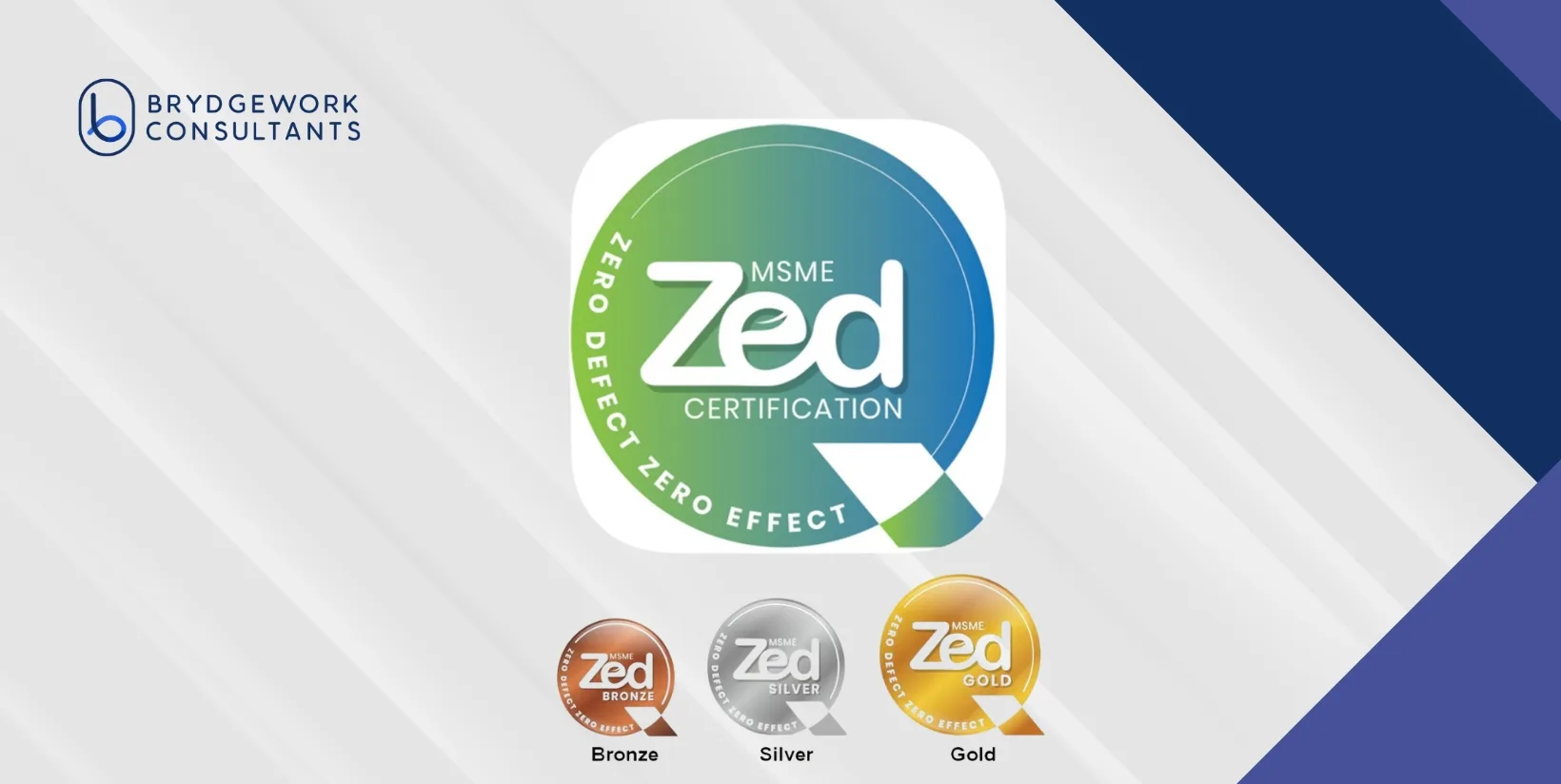
Certifications are important for a Business because they signify that the business complies with certain quality or operational requirements needed for obtaining that particular certificate. Additionally, rather than talking good about yourself in stating that “I comply” with so and so standards, it is always better to receive third-party validation in “they have certified that I comply”, where “they” could refer to an organisation of repute that issues the said certificate. But what if instead of a commonplace organisation, your business could receive such a certification from The Government of India? The MSME Sustainable (ZED) Certification is one such certification that can help enterprises establish their credentials by obtaining the backing of the government.
The Zero Defect Zero Effect (ZED) Certification Scheme was launched in the year 2016 by the Ministry of Micro Small and Medium Enterprises, Government of India. As the name suggests, the scheme creates a provision for recognising those MSMEs that meet certain quality standards for creating minimal wastes or errors in their products or services and negligible negative impact on the environment.
The rationale behind this scheme was to encourage and empower businesses in India to ensure that the products and services they delivered were of the highest quality, bore no defects, and left no footprint on the ecosystem. This would ensure that businesses around the world would compete to ‘Make in India’, and that the products produced in the country would be competitive on a global scale.
The scheme focused on MSMEs specifically as the sector is considered to be a “propellant for sustained growth”, given the fact that these organisations contribute about 30% to the Nation’s GDP, 45% to exports, and employ over 23 crore people. Moreover, thanks to the provisions and benefits of the MSME Scheme, the sector is only expected to expand over the years, driving the growth of the country even further.
The government realised that in order to make this vision a reality, the key focus areas would be a) improving the ease of doing business, b) ensuring quality in source materials, components and services, and c) providing competent human resources. Hence, they came up with the ZED Certification scheme, later reinstituted as the MSME Sustainable (ZED) Certification Scheme in 2022, to motivate businesses to strive for operational efficiency, boost productivity, environmental consciousness, optimal use of natural resources, etc.
The implementation of the scheme is planned in two phases:
There are three certification levels, linked to meeting standards in the specified parameters. The details of the levels and the parameters are as follows:
Certification Level 1: BRONZE – Leadership, Swachh Workplace, Occupational (Workplace) Safety, Measurement of Timely Delivery, and Quality Management
Certification Level 2: SILVER – All parameters of BRONZE level, Human Resource Management, Daily Works Management, Planned Maintenance & Calibration, Process Control, Product Quality & Safety (Testing/Certification), Material Management, Energy Management, Environment Management, and Measurement and Analysis
Certification Level 3: GOLD – All parameters of SILVER level, Supply Chain Management, Risk Management, Waste Management (Muda, Mura, Muri), Technology Selection & Upgradation, Natural Resource Conservation, and Corporate Social Responsibility

Businesses registered as MSMEs on the Udyam portal are eligible to apply for the certification process.
All applicants are required to take the “ZED Pledge” before applying for a certification. Upon taking the pledge, they can apply for any level which they feel they can meet all requirements for. The pledge acts as a ‘pre-commitment’ for upholding the values of Zero Defect Zero Effect by the MSMEs.
While applying, they have to specify their basic information, and then upload documentary evidence of having undertaken all compliance requirements. These documents will be verified, and an assessment of your organisation may be carried out remotely/onsite depending upon the level of certification applied for. Once the assessment is complete, your business will receive the respective certification if found eligible.
Managing all compliance requirements and determining whether your business is eligible for availing of these benefits can be quite challenging. But Brydgework Consultants can make the job easier for you. Right from the setting up of your venture to registering as an MSME, to applying for the various incentives offered and certification levels, we can help you with every step of the process. Visit our website to learn more about the full suite of our Business Nurture and Strategic Consultancy services.
December 18, 2024 | Pranav Garg
Blockchain technology has been the buzzword since the time Bitcoin and other Cryptocurrencies gained popularity. It is the technology that…
Read More
November 16, 2024 | Team Brydgework
India offers a variety of business structures, each with distinct characteristics, setup processes, and regulatory requirements. Choosing the right structure…
Read More
July 7, 2025 | Pallav Singh
There is something deeply unsettling about walking into a store, picking up a smartphone wrapped in biodegradable packaging, and being…
Read More